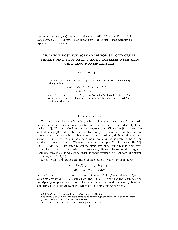摘要
In this article, we study the second-order three-point boundary-value problem u ''(t) + a(t)u'(t) + f(t, u) = 0, 0 <= t <= 1, u'(0) = 0, u(1) = alpha u(eta), where 0 < alpha, eta < 1, a epsilon C([0, 1], (-infinity, 0)) and f is allowed to change sign. We show that there exist two positive solutions by using Leggett-Williams fixed-point theorem.
- 出版日期2012-9-7
- 单位曲阜师范大学; 山东财经大学
